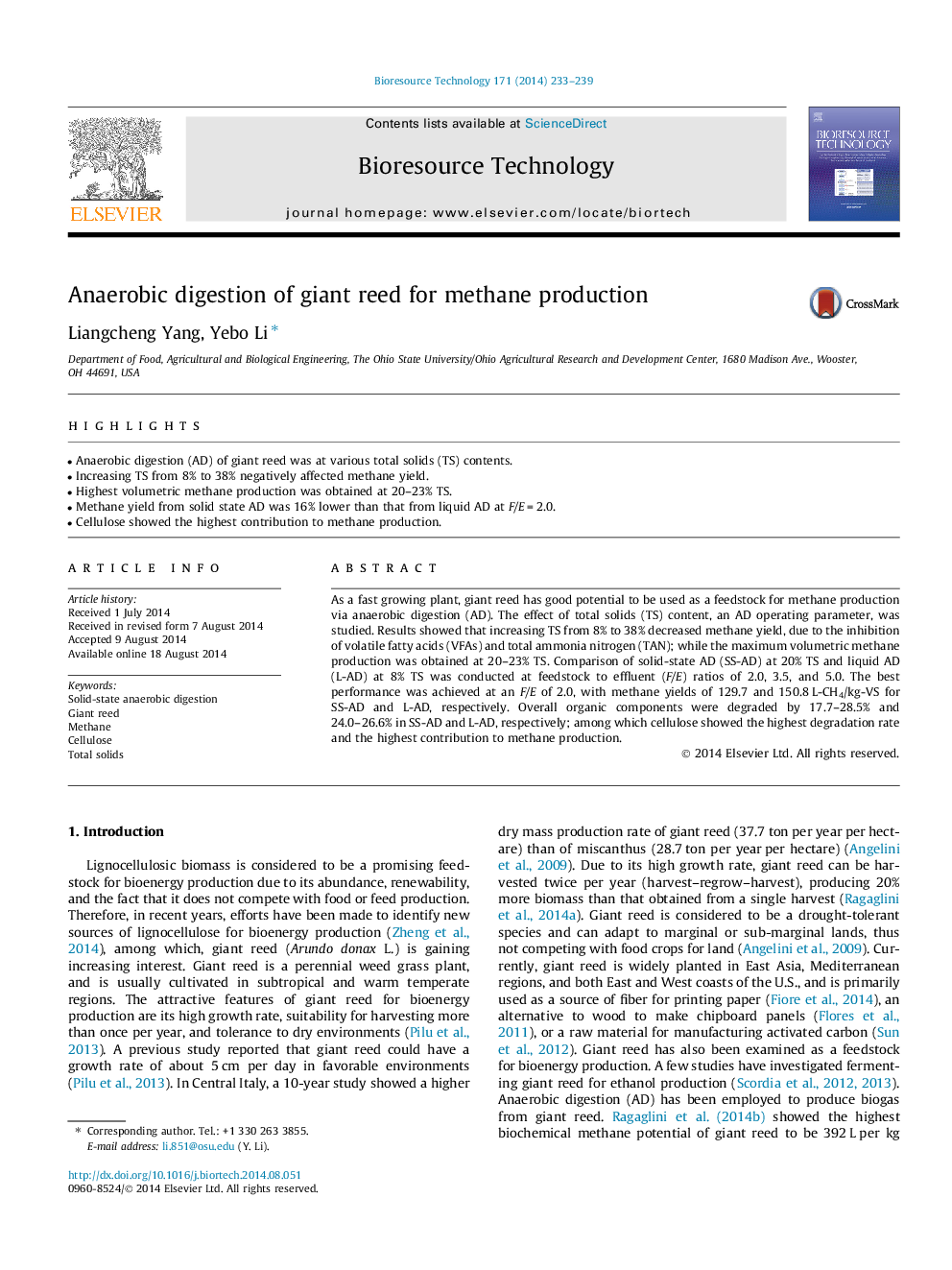| Article ID | Journal | Published Year | Pages | File Type |
|---|---|---|---|---|
| 680360 | Bioresource Technology | 2014 | 7 Pages |
Abstract
As a fast growing plant, giant reed has good potential to be used as a feedstock for methane production via anaerobic digestion (AD). The effect of total solids (TS) content, an AD operating parameter, was studied. Results showed that increasing TS from 8% to 38% decreased methane yield, due to the inhibition of volatile fatty acids (VFAs) and total ammonia nitrogen (TAN); while the maximum volumetric methane production was obtained at 20-23% TS. Comparison of solid-state AD (SS-AD) at 20% TS and liquid AD (L-AD) at 8% TS was conducted at feedstock to effluent (F/E) ratios of 2.0, 3.5, and 5.0. The best performance was achieved at an F/E of 2.0, with methane yields of 129.7 and 150.8Â L-CH4/kg-VS for SS-AD and L-AD, respectively. Overall organic components were degraded by 17.7-28.5% and 24.0-26.6% in SS-AD and L-AD, respectively; among which cellulose showed the highest degradation rate and the highest contribution to methane production.
Related Topics
Physical Sciences and Engineering
Chemical Engineering
Process Chemistry and Technology
Authors
Liangcheng Yang, Yebo Li,
